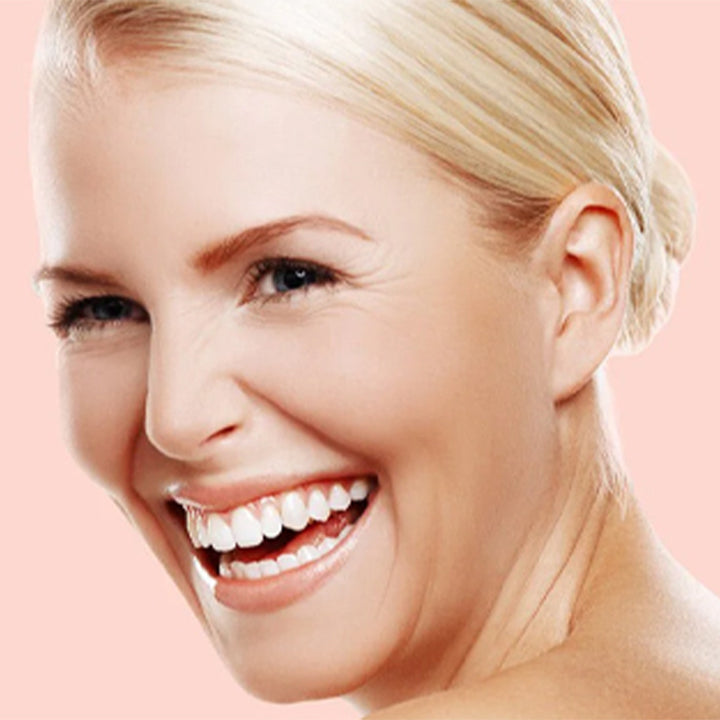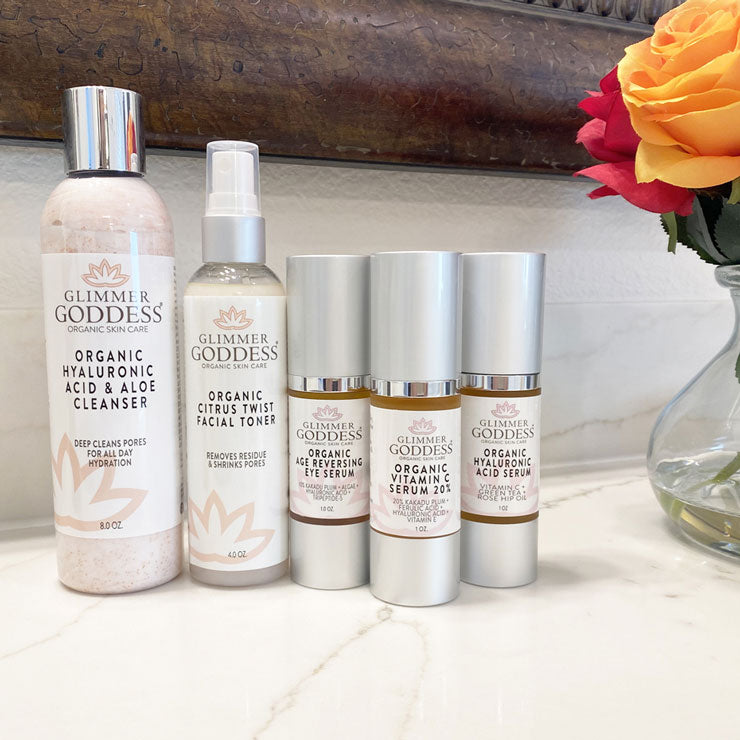Article: Winter Sun: A Hidden Gem for Your Skin Care Routine?

Winter Sun: A Hidden Gem for Your Skin Care Routine?
Discover the surprising benefits of winter sun exposure for your skin care routine. Learn how the unique properties of winter sun impact skin health, vitamin D synthesis, and potential risks. Find out how to enjoy the sun safely while maintaining a radiant complexion.
The Surprising Benefits of Winter Sun: Unlocking Skin Health and Vitamin D Secrets
Why is Winter Sun Different from Summer Sun?
The sun's rays during the winter months can be quite different from the summer. While the sun may appear less intense, the wavelengths of ultraviolet (UV) radiation reaching the Earth's surface can actually be more potent.
The Seasonal Shift in Solar Radiation
- During the winter, the sun's rays hit the Earth at a more oblique angle, meaning they pass through more of the atmosphere before reaching the ground.
- This increased atmospheric filtering can lead to a higher proportion of UVB rays, which are responsible for vitamin D production in the skin.
- Conversely, in the summer, the sun's rays strike the Earth more directly, resulting in a greater presence of UVA rays, which are associated with skin aging and wrinkles.
The winter sun's unique properties can significantly impact skin health and vitamin D synthesis, offering both benefits and potential risks that are important to understand.
How Does the Winter Sun Impact Skin Health?
While the winter sun may seem less intense, it can actually have a profound effect on the skin, both positively and negatively.
The Upside of Winter Sun Exposure
- The higher proportion of UVB rays during the winter can stimulate the skin's natural production of vitamin D, which is essential for maintaining bone health, immune function, and overall well-being.
- Moderate exposure to winter sun can also help reduce the appearance of certain skin conditions, such as eczema and psoriasis, by regulating the immune system and reducing inflammation.
- The winter sun's less direct rays can be gentler on the skin, potentially reducing the risk of sunburns and sun damage compared to the more intense summer sun.
The Downside of Winter Sun Exposure
- Despite the potential benefits, excessive or prolonged exposure to the winter sun can still lead to skin damage, including premature aging, wrinkles, and an increased risk of skin cancer.
- The reflective nature of snow and ice can also amplify the sun's rays, making it easy to underestimate the amount of UV exposure and potentially leading to sunburns or other skin irritations.
Understanding the nuances of the winter sun's impact on skin health is crucial for maintaining a healthy, balanced approach to sun exposure throughout the year.
Can You Get Vitamin D from Winter Sun?
One of the primary benefits of winter sun exposure is its ability to stimulate the skin's natural production of vitamin D, a vital nutrient that plays a crucial role in various aspects of health.
The Science Behind Vitamin D Synthesis
- When the skin is exposed to UVB rays from the sun, it triggers a process that converts a precursor molecule, 7-dehydrocholesterol, into vitamin D3, the active form of vitamin D.
- During the winter, the increased proportion of UVB rays reaching the Earth's surface can enhance this natural vitamin D production, provided the exposure is adequate.
Factors That Affect Vitamin D Synthesis
- The amount of time spent in the sun, the intensity of the sun's rays, and the individual's skin pigmentation all play a role in determining the efficiency of vitamin D synthesis.
- People with darker skin tones may require more sun exposure to produce the same amount of vitamin D as those with lighter skin, as melanin can inhibit the conversion process.
- Geographic location and weather conditions can also influence the availability of UVB rays, with higher latitudes and cloudy days reducing the potential for vitamin D production.
Incorporating safe and moderate winter sun exposure can be an effective way to boost vitamin D levels, but it's important to be mindful of individual factors and potential risks.
Are There Any Risks with Winter Sun Exposure?
While the winter sun can offer some benefits, it's crucial to be aware of the potential risks associated with excessive or improper exposure.
The Dangers of Overexposure
- Just like in the summer, excessive exposure to the winter sun can lead to sunburns, accelerated skin aging, and an increased risk of skin cancer.
- The reflective nature of snow and ice can amplify the sun's rays, making it easy to underestimate the intensity of UV exposure and potentially leading to unexpected skin damage.
- People with certain skin conditions or photosensitivity may be more susceptible to the harmful effects of winter sun exposure.
Strategies for Safe Winter Sun Exposure
- Limit direct sun exposure during the peak hours of the day, typically between 10 am and 2 pm, when the sun's rays are most intense.
- Wear protective clothing, such as long sleeves, pants, and a wide-brimmed hat, to cover exposed skin.
- Use a broad-spectrum sunscreen with an SPF of 30 or higher, even on cloudy days, and reapply it regularly.
- Be mindful of reflective surfaces, such as snow and ice, which can amplify the sun's rays and increase the risk of sunburn.
The winter sun may offer unique benefits, but it's important to approach its exposure with the same caution and care as the summer sun. By understanding the nuances of winter sun's impact on skin health and vitamin D synthesis, you can enjoy the season's natural gifts while prioritizing long-term skin protection and overall well-being.
Enjoy the Sun Safely: Your Guide to Healthy, Radiant Skin
What Are the Recommended Duration and Timing?
When it comes to sun exposure, moderation is key. The optimal duration and timing of sun exposure can vary depending on your skin type, location, and the time of year.
Striking the right balance between getting enough vitamin D from the sun and protecting your skin from harmful UV rays is essential for maintaining healthy, radiant skin.
- Experts recommend limiting direct sun exposure during the peak hours of 10 AM to 4 PM, when the UV rays are the strongest.
- Fair-skinned individuals may need as little as 10-15 minutes of sun exposure a few times a week to maintain healthy vitamin D levels, while those with darker skin may require longer durations.
- The recommended duration of sun exposure can also vary based on your location and the season. During the summer months, when the sun's rays are more intense, it's important to limit your time in the sun and seek shade whenever possible.
- In the winter, when the sun's rays are less intense, you may be able to spend more time outdoors without as much risk of sun damage.
- It's always a good idea to consult with your dermatologist to determine the optimal sun exposure for your unique skin type and lifestyle.
Remember, the key is to find the right balance between enjoying the sun's benefits and protecting your skin from its harmful effects. With a little knowledge and preparation, you can maintain a healthy, radiant glow all year round.
How to Protect Your Skin While Enjoying the Sun?
Protecting your skin from the sun's harmful UV rays is essential for maintaining healthy, youthful-looking skin. There are several steps you can take to enjoy the sun safely and minimize the risk of sun damage.
Incorporating sun-safe habits into your daily routine is the best way to keep your skin protected while still allowing you to reap the benefits of the sun's warmth and vitamin D.
- Wear protective clothing, such as hats, long-sleeved shirts, and pants, to cover as much of your skin as possible when spending time outdoors.
- Apply a broad-spectrum sunscreen with an SPF of 30 or higher to all exposed areas of your skin, and reapply every 2 hours, or more frequently if you're swimming or sweating.
- Seek shade whenever possible, especially during the peak UV hours of 10 AM to 4 PM.
- Avoid tanning beds and sun lamps, as they emit harmful UVA and UVB rays that can significantly increase your risk of skin cancer and premature aging.
- If you do experience a sunburn, aloe vera gel and cool compresses can help soothe the discomfort and promote healing.
- It's also important to stay hydrated and nourish your skin with antioxidant-rich foods to support its natural healing and repair processes.
By taking these simple precautions, you can enjoy the sun's warmth and beauty while keeping your skin healthy and radiant for years to come.
What Types of Sun Protection Products Should You Use?
Choosing the right sun protection products is crucial for safeguarding your skin from the sun's harmful UV rays. With so many options on the market, it can be overwhelming to know which products to use.
Investing in high-quality, broad-spectrum sun protection products is an essential step in maintaining healthy, youthful-looking skin.
- Look for sunscreens that contain both chemical and mineral (physical) filters, as they provide the most comprehensive protection against UVA and UVB rays.
- Choose a sunscreen with an SPF (sun protection factor) of at least 30, which blocks approximately 97% of the sun's UVB rays.
- In addition to sunscreen, consider using other sun protection products, such as hats, sunglasses, and UV-blocking clothing, to further shield your skin from the sun's damaging effects.
- For optimal protection, apply sunscreen generously and reapply every 2 hours, or more frequently if you're swimming or sweating.
- Consider incorporating antioxidant-rich products, such as serums or moisturizers containing vitamin C or E, into your daily routine to help neutralize free radicals and support your skin's natural defenses.
- If you plan to spend extended periods in the sun, look for water-resistant or sweat-proof sunscreens to ensure long-lasting protection.
Protecting your skin from the sun's harmful rays is an essential step in maintaining its health and radiance. By choosing the right sun protection products and incorporating them into your daily routine, you can enjoy the sun's benefits while minimizing the risk of sun damage.
How to Balance Winter Fun and Skin Safety?
While many of us look forward to the winter months and the opportunity to enjoy outdoor activities, it's important to remember that the sun's rays can be just as damaging during the colder seasons.
Maintaining a healthy, radiant complexion throughout the winter requires a thoughtful approach to sun protection and skin care.
- Even on overcast or cloudy days, the sun's UVA and UVB rays can still penetrate the skin and cause damage, so it's important to continue using broad-spectrum sunscreen.
- When engaging in winter sports like skiing or snowboarding, the sun's rays can be amplified by the snow's reflective surface, increasing your risk of sunburn and long-term sun damage.
- In addition to sunscreen, consider wearing protective clothing, such as a wide-brimmed hat, goggles, and a scarf or balaclava to shield your face and neck from the sun's rays.
- During the winter months, it's also important to focus on hydrating and nourishing your skin to counteract the drying effects of cold, windy weather.
- Incorporating rich, creamy moisturizers and serums containing hyaluronic acid and ceramides can help lock in moisture and strengthen your skin's natural barrier.
By taking a proactive approach to sun protection and skin care, you can enjoy all the winter activities you love while keeping your skin healthy, radiant, and protected from the sun's harmful effects. Remember, a little preparation goes a long way in maintaining a youthful, glowing complexion year-round.
Soothe and Revive: Your Ultimate Post-Sun Skincare Guide
What Are the Best Post-Sun Skin Care Routines?
After a day spent soaking up the sun, your skin deserves extra TLC. Implementing the right post-sun skincare routine can make all the difference in keeping your complexion healthy, hydrated, and radiant.
Proper post-sun skincare is essential for maintaining your skin's delicate balance and preventing long-term damage.
- Cleanse gently to remove sunscreen, sweat, and impurities without stripping your skin.
- Use a soothing, fragrance-free moisturizer to replenish lost moisture and calm any redness or irritation.
- Apply a targeted serum or essence that contains antioxidants, like vitamin C or green tea, to neutralize free radicals and support skin repair.
- Finish with a broad-spectrum sunscreen to protect your skin from further UV exposure.
How to Rehydrate and Repair Your Skin?
Sunburns and sun exposure can leave your skin feeling dry, tight, and uncomfortable. Replenishing hydration and supporting your skin's natural healing process is crucial.
Incorporate these hydrating and restorative steps into your post-sun routine:
- Exfoliate gently to remove any flaky or peeling skin, but avoid harsh scrubbing that can further irritate your complexion.
- Use a hydrating face mask or sheet mask packed with soothing ingredients like aloe vera, hyaluronic acid, or ceramides to deeply nourish and replenish your skin.
- Apply a rich, creamy moisturizer to lock in hydration and support your skin's natural barrier function.
- Consider using a facial oil or facial serum containing omega-rich oils or botanical extracts to deliver intense hydration and repair.
Which Skincare Ingredients Work Best After Sun Exposure?
When it comes to post-sun skincare, certain ingredients are particularly effective at soothing, repairing, and protecting your skin.
Look for the following powerhouse ingredients in your post-sun products:
- Aloe vera - Known for its calming and soothing properties, aloe vera can help reduce inflammation and redness.
- Vitamin E - This antioxidant vitamin helps neutralize free radicals and supports skin regeneration.
- Ceramides - These lipids help strengthen the skin's protective barrier and lock in moisture.
- Hyaluronic acid - A powerful humectant that can deeply hydrate and plump the skin.
- Niacinamide - This form of vitamin B3 can help minimize redness and even out skin tone.
Why Are Regular Skin Check-ups Important After Winter?
While summer sun exposure may be top of mind, it's crucial to maintain regular skin checks throughout the year. Diligent monitoring can help catch any potential issues early on.
Routine skin examinations with a dermatologist offer several benefits:
- Early detection of skin cancer or precancerous lesions, which are more treatable when caught early.
- Identification of changes in moles or other concerning skin growths that may require further evaluation.
- Personalized guidance on maintaining healthy skin and adapting your skincare routine to seasonal needs.
- Peace of mind and a proactive approach to your long-term skin health.
Caring for your skin after sun exposure is essential for preserving its radiance, resilience, and overall well-being. By following a tailored post-sun skincare routine and staying on top of regular skin checks, you can ensure your complexion is protected, nourished, and glowing all year round.
The Ultimate Skin Transformation: Discover Our Organic Beauty Wonders! 💕
Organic Moisturizing Body Wash
Are you tired of harsh, drying body washes that leave your skin feeling tight and uncomfortable? Introducing our Organic Moisturizing Body Wash - the secret to achieving soft, supple, and radiant skin!
Crafted with the finest certified organic ingredients, this gentle yet effective liquid soap is your gateway to a truly luxurious bathing experience.
- Infused with a blend of nourishing essential oils, our body wash delivers a refreshing, clean scent that will uplift your senses and transport you to a state of pure relaxation. ✨
- Enriched with the skin-loving properties of Shea Butter and Coconut Oil, this versatile formula works wonders for your face, body, and hair, leaving behind a soft, silky-smooth finish that lasts long after you step out of the shower. 💦
- Suitable for even the most sensitive of skin types, including babies, our Organic Moisturizing Body Wash is completely free from harsh chemicals, additives, colorants, and other potentially irritating ingredients. 👶
- Gentle enough for daily use, this sulfate-free, vegan, and gluten-free formula cleanses deeply while locking in essential moisture, preventing dryness and maintaining the skin's natural pH balance. 🌱
- Packed with skin-brightening vitamins A, D, and E, our Organic Moisturizing Body Wash nourishes and revitalizes your complexion, revealing a radiant, healthy-looking glow. 🌟

Shop Organic Moisturizing Body Wash Now
Elevate your self-care routine and indulge in the transformative power of our Organic Moisturizing Body Wash. Your skin will thank you! 💕
Organic Niacinamide Anti Aging Serum - Tightens Pores, Reduces Wrinkles
Get ready to say goodbye to dull, aging skin and hello to a youthful, radiant complexion with our Organic Niacinamide Anti Aging Serum!
Formulated with a powerful 5% Niacinamide blend, along with the skin-nourishing benefits of Rosehip Seed Oil, Shea Butter, and Avocado Oil, this potent serum is your secret weapon against the visible signs of aging.
- Niacinamide, also known as Vitamin B3, is a true skin-transforming superhero. It works wonders by tightening pores, minimizing the appearance of fine lines and wrinkles, and improving overall skin texture and tone. 🧠
- Rosehip Seed Oil is a rich source of essential fatty acids and antioxidants that deeply hydrate and nourish the skin, promoting a more even and radiant complexion. 🌹
- Shea Butter and Avocado Oil team up to provide intense moisture and suppleness, restoring elasticity and leaving your skin soft, supple, and youthful-looking. 🥑
- Suitable for all skin types, our Organic Niacinamide Anti Aging Serum is formulated without any harsh chemicals, fragrances, or other potentially irritating ingredients, making it a safe and effective choice for even the most sensitive complexions. 🌿
- With regular use, this powerhouse serum will visibly diminish the appearance of wrinkles, brighten dull skin, and reveal a smoother, more luminous complexion that radiates with confidence. 💫

Shop Organic Niacinamide Anti Aging Serum Now
Embrace the power of nature and transform your skin with our Organic Niacinamide Anti Aging Serum. Achieve a youthful, radiant glow that will have everyone wondering about your secret! 💫
Q&A
How does the winter sun differ from summer sun?
Winter sun has a higher proportion of UVB rays compared to summer sun, which can impact vitamin D production and skin health differently. In the winter, the sun's rays hit the Earth at a more oblique angle, passing through more of the atmosphere.
Can you get vitamin D from winter sun exposure?
Yes, winter sun exposure can stimulate the skin's natural production of vitamin D, thanks to the increased proportion of UVB rays during the winter months. Factors like skin pigmentation, time spent in the sun, and geographic location can affect the efficiency of vitamin D synthesis.
What are the risks associated with winter sun exposure?
Excessive or improper winter sun exposure can lead to sunburns, premature aging, and an increased risk of skin cancer. The reflective nature of snow and ice can amplify the sun's rays, making it crucial to practice safe sun exposure habits.
How can you protect your skin while enjoying the winter sun?
To protect your skin during the winter sun exposure, limit direct exposure during peak hours, wear protective clothing, use broad-spectrum sunscreen, and be cautious of reflective surfaces like snow and ice. By following these strategies, you can enjoy the winter sun safely.
What are the benefits of safe winter sun exposure for skin health?
Safe winter sun exposure can stimulate vitamin D production, reduce skin conditions like eczema and psoriasis, and offer a gentler alternative to the harsh summer sun. Understanding the benefits of winter sun exposure can help you maintain a healthy and balanced approach to sun exposure.
By understanding the nuances of winter sun's impact on skin health and vitamin D synthesis, you can enjoy the season's natural gifts while prioritizing long-term skin protection and overall well-being. Remember to follow safe sun exposure practices to maintain a healthy and radiant complexion.






